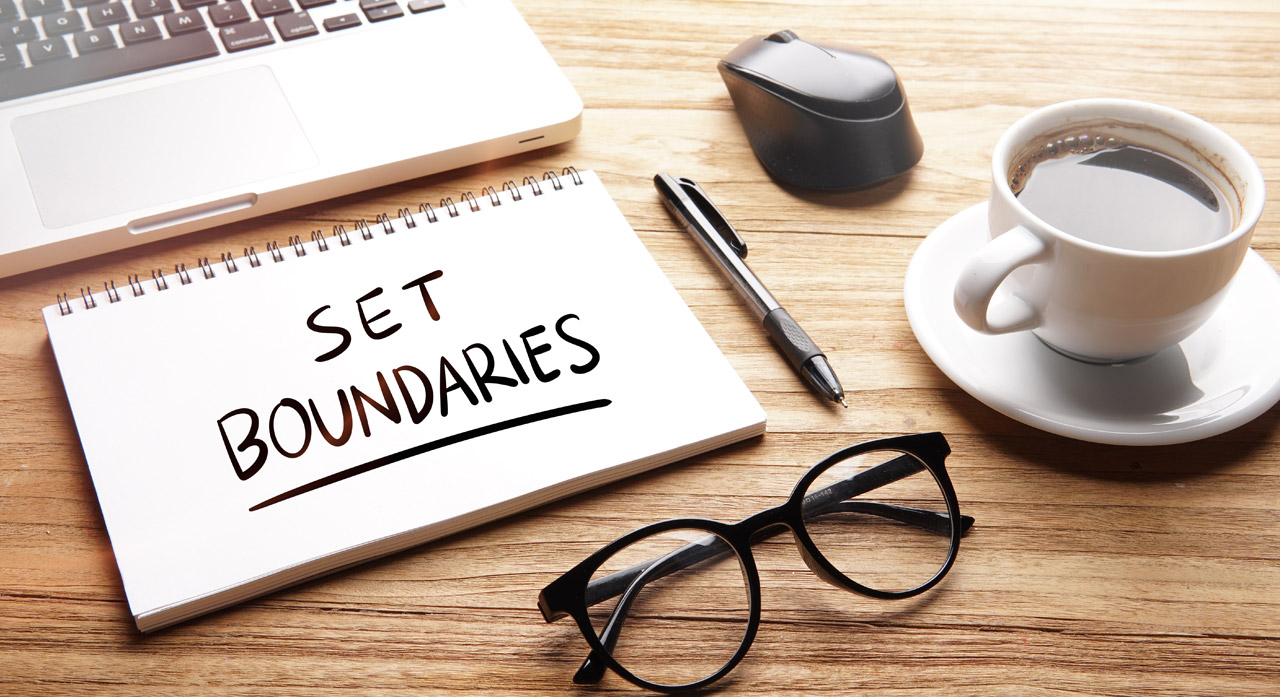Learn To Set Boundaries
If someone were to inquire about my imperfections, I would readily admit that holding onto grudges is one of them.
In my relationships, loyalty holds great significance. However, when faced with betrayal, it leaves an impact. Letting go and moving forward has been a journey for me, marked by betrayals from work colleagues, family members, and close friends.
While certain relationships have healed over time, others have reached an impasse. Yet forgiveness remains crucial in my heart, even if rebuilding trust seems unattainable.
Some people we have helped the most can become our biggest enemies.
Years ago, I experienced a deep betrayal that felt like a tsunami. The only more painful experience of my life was losing my husband. It involved two women whom I had trusted completely. When I stumbled on the truth, I was emotionally devastated.
This betrayal became a turning point for me. I decided to sever ties with these individuals and embarked on a journey of healing and self-discovery under the guidance of my therapist.
He helped me realize that these relationships held me back like an anchor. Although it was painful, I decided to sever the relationships, which ultimately paved the way for my healing. It taught me a lesson about trust and reciprocity…and when it’s time to close the checkbook for financially helping people.
I often hear these women tell people I’m crazy and I hold grudges. However, I came across a quote on Pinterest that struck a chord with me; “Those aren’t grudges; those are boundaries.” This became my mantra, emphasizing the significance of establishing boundaries for my physical well-being.
This situation was a catalyst for me to leave one chapter of my life behind and move on to my current chapter. Honestly, my life has significantly improved.
Those are not grudges; those are boundaries.
Understanding the distinction between grudges and boundaries is essential to differentiate between holding onto feelings and setting boundaries. Holding a grudge means dwelling on negativity and sometimes even desiring revenge.
On the other hand, establishing boundaries is an act of self-care, a step to prevent further emotional harm.
For example, when a close friend repeatedly breaches your trust, being more cautious about what you share isn’t fueled by resentment; it’s about safeguarding your well-being.
First, at the right point in time, you need to forgive in your heart the people and what they did. Forgiveness sets you on the right path. HOWEVER, when you can forgive them, it doesn’t mean you have to allow them back in your life. When trust of a certain magnitude is broken, it’s probably best to forgive but not forget. At times, the only way you can protect yourself is to cease contact with the person.
Forgiveness is possible without allowing the other person’s behavior into our lives. Our experiences taught us the importance of not holding grudges; instead, we can remember our intent’s facts and purity. This mindset guides us in navigating our relationships while prioritizing our well-being and peace of mind.
The things that broke my heart also cleared my vision.
In the situation discussed above, there were other people involved. I let them know that if they ever wanted to rebuild a relationship, we would need to sit down, in private, face to face to talk about how our relationship got off track. Several of them have come to me, and we’ve been able to rebuild a relationship. I clarified to them that I had developed new boundaries to protect myself. I can’t say we’re as close as we once were, but the line of communication is open. I realized when people don’t want to sit and discuss it with you face to face, they never valued the relationship, only the things I did for them.
I am grateful to them for the good times we experienced and their role in my life. I forgive them for what they did and ask forgiveness for what they felt I did to them.
Establishing boundaries is a journey toward liberation and healthier relationships. It involves choosing your well-being and tranquility over the burdens of wounds. Remember, it’s a process, so being patient with yourself is essential.
The Empowering Role of Mindful Grudge Holding
There is a strength in holding onto grudges. It’s not about nurturing bitterness within ourselves. Instead, affirm that we will never allow certain things to happen again. This stance serves as a testament to our self-worth and commitment to self-respect.
Finding Strength During Heartbreak
Despite the pain it brings, heartbreak can be a catalyst for our growth and resilience. It helps us clarify what matters: nurturing growth and fostering gratitude for genuine connections. Setting boundaries in the aftermath of heartbreak is how we protect our hearts while remaining open to happiness and trust.
Forgiveness and Boundaries
Forgiveness plays a role in healing. It doesn’t mean we must remain in toxic situations. Setting boundaries becomes an act of self-preservation, where we recognize our value.
It’s all about finding peace by coming to terms with our past and ensuring a future for ourselves.
Emphasizing the Importance of Mental and Emotional Wellbeing
For women 50 years and above, understanding and establishing boundaries plays a role in maintaining emotional health. It’s not about holding onto negativity but making choices that promote our well-being. With the wisdom gained from life experiences, we embrace the sense of empowerment that comes from setting boundaries.
How to Establish Boundaries
1. Recognize the Impact
Acknowledge Your Emotions: Take a moment to recognize that holding onto grudges often stems from feelings of hurt, betrayal, or injustice. Understanding the root cause behind your grudge is the step towards moving.
Reflect on Consequences: Consider how carrying this grudge impacts your emotional state. Holding onto grudges can lead to increased stress and anxiety, hindering growth.
2. Deal with Your Emotions
Expressing Emotions Safely: Find an outlet to express your feelings, be it through writing, artistry, or confiding in a trusted friend or therapist.
Allow Yourself to Grieve: Sometimes, holding onto a grudge is tied to feelings of loss – loss of trust, respect, or even a relationship. Allowing yourself space to grieve this loss is vital for healing.
3. Change Your Perspective
Empathy and Understanding: Try to see things from the person’s point of view. This doesn’t mean excusing their actions. Gaining understanding can be liberating.
Prioritize Personal Growth: Shift your focus from holding onto resentment to focusing on your development. What lessons can you take away from this experience? How can it make you stronger or wiser?
4. Forgive
Forgive, But Don’t Forget; Forgiveness is about finding peace within yourself. It doesn’t mean condoning or forgetting the wrongdoing. Instead, choosing to let go of resentment.
Self-Forgiveness: Sometimes, we find forgiving ourselves for our mistakes difficult. Practicing self-forgiveness is just as important.
5. Establish Boundaries
Clearly Define Your Boundaries: Take the time to clearly define what you are comfortable with in relationships and what you are not. Setting boundaries is crucial for maintaining relationships.
Communicate Your Boundaries: Clearly and assertively communicate your boundaries to others. This helps prevent misunderstandings and fosters mutual respect.
6. Seek Support
Professional Assistance: If overcoming a grudge feels particularly challenging, consider seeking guidance and strategies from a therapist or counselor.
Support Groups: Connecting with others who have gone through situations can provide support and understanding.
7. Maintain a Balanced Perspective
Think about the bigger picture and focus on your life’s aspects and needs. Does resentment play a role in it? Always try to opt for harmony. Prioritizing peace and your overall well-being rather than clinging to grudges can lead to a happier life.
8. Consistent Practice
Regularly engage in mindfulness and reflect on your emotions and reactions helps acknowledge and release grudges. Remember, these are life lessons, and try to develop resilience. Life will always present challenges. Developing resilience can help you manage them without holding onto grudges.

